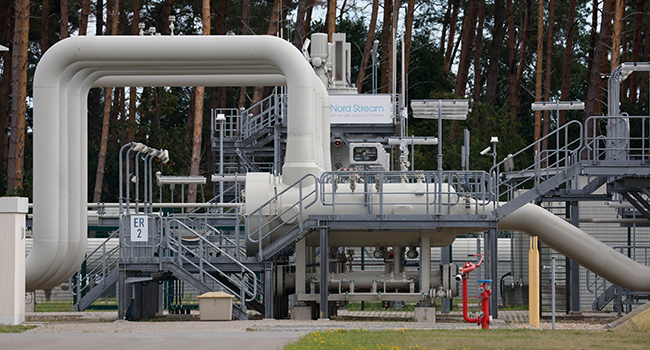“Nigeria Approves Gas Supply to $3.3bn Methanol Plant: What This Means for the Economy and Energy Sector”

“Nigeria Approves Gas Supply to $3.3bn Methanol Plant: What This Means for the Economy and Energy Sector”
The Nigerian government has just given the green light for gas supply to a massive $3.3 billion methanol plant, marking a significant milestone in the country’s industrialization journey. This project promises to transform Nigeria’s economic landscape and elevate its energy production capabilities. But what does this really mean for the country, and how could it impact the global methanol market? Let’s dive into the details.
Nigeria, known for its rich oil and gas resources, has long been working to diversify its energy production and manufacturing base. The approval of gas supply to the $3.3 billion methanol plant is a significant leap toward achieving that goal. Methanol, a versatile chemical used in the production of plastics, pharmaceuticals, and fuels, plays a critical role in various industries globally.
This project is more than just an industrial facility; it is a symbol of Nigeria’s transition into a major player in the international methanol market. By harnessing its abundant natural gas resources, the country can transform its raw materials into high-value products, creating jobs and boosting revenue in the process.
Before diving deeper into the implications of this project, it’s essential to understand what methanol is and why it matters. Methanol is a simple alcohol compound, highly sought after for its application in different industries. Its primary uses include:
Methanol is used as a building block in producing chemicals such as formaldehyde and acetic acid, key ingredients in manufacturing plastics, adhesives, and paints.
Methanol can be blended with gasoline or used as a standalone fuel for vehicles, particularly in regions seeking cleaner, more sustainable energy sources.
Methanol is a greener alternative to conventional fossil fuels. It emits fewer pollutants, making it a key player in reducing global greenhouse gas emissions.
With its widespread applications, methanol production is poised to become a significant contributor to global economic and environmental trends. Nigeria’s investment in methanol production could see the country rise to prominence in this ever-expanding market.
At the core of this methanol plant is natural gas, one of Nigeria’s most valuable resources. Natural gas is not only an energy source but also the primary feedstock for methanol production. With over 200 trillion cubic feet of proven natural gas reserves, Nigeria has the potential to become a global leader in methanol production.
The decision by the Federal Government to approve gas supply to this plant is a strategic move to tap into this potential. With the demand for methanol on the rise, securing a reliable gas supply is key to ensuring the success of the project. This gas supply approval could also open doors for further investments in downstream industries such as fertilizers, chemicals, and other petrochemical products, driving economic growth.
One of the most exciting aspects of this project is the potential economic impact. The $3.3 billion methanol plant is expected to create thousands of direct and indirect jobs, from construction and engineering to operations and logistics. As Nigeria continues to grapple with high unemployment rates, this project provides a much-needed source of employment for the local population.
Moreover, the project is set to generate significant revenue for the government through taxes and exports. Methanol is a high-demand commodity, and with global markets such as China and the European Union increasingly looking for greener, more sustainable energy sources, Nigeria could find itself in a prime position to meet this demand. This additional revenue can be reinvested into other sectors, such as infrastructure, healthcare, and education, fueling long-term economic development.
The approval of this project places Nigeria on the map as a competitive player in the global methanol market. Currently, the world’s largest producers of methanol include China, the United States, and Trinidad & Tobago. With the new plant, Nigeria could join these ranks and gain a foothold in a fast-growing industry. The global methanol market is expected to grow at a compound annual growth rate (CAGR) of over 5% by 2028, and Nigeria’s contribution could be pivotal in shaping this expansion.
Additionally, methanol is recognized as a cleaner-burning fuel compared to traditional petroleum-based products. As the world shifts towards greener alternatives, Nigeria’s increased production capacity will align with the global push for sustainability. The environmental benefits of methanol could help Nigeria address some of its pollution issues while contributing to global efforts to reduce carbon emissions.
While the methanol plant presents a golden opportunity for Nigeria, the country still faces several challenges in bringing this project to full fruition. One of the major hurdles is infrastructure. Nigeria’s energy infrastructure, particularly in gas transportation and processing, needs significant upgrades to support large-scale methanol production. Investment in pipelines, storage facilities, and distribution networks will be essential to ensure the smooth operation of the plant.
Moreover, attracting continuous investment into the country remains critical. Foreign investors may be wary of Nigeria’s regulatory environment, economic stability, and security issues. The government will need to create favorable conditions to lure in long-term investments. This could include offering tax incentives, simplifying business regulations, and ensuring a stable policy environment to reduce investor risk.
The approval of gas supply to the $3.3 billion methanol plant is a monumental step forward for Nigeria’s energy and industrial sectors. As the country seeks to diversify its economy and reduce its dependence on crude oil exports, projects like this will play a crucial role in shaping Nigeria’s future. With the right infrastructure, investment, and policies, Nigeria could become a global leader in methanol production, bringing economic prosperity and environmental benefits in equal measure.
The next few years will be critical in determining the success of this project. If Nigeria can overcome the challenges of infrastructure and investment, the country could usher in a new era of industrialization and energy innovation, securing its place on the global stage.
Do you find Tmaq Media useful? Click here to give us five stars rating!



















